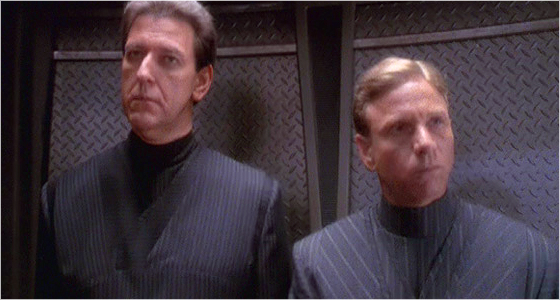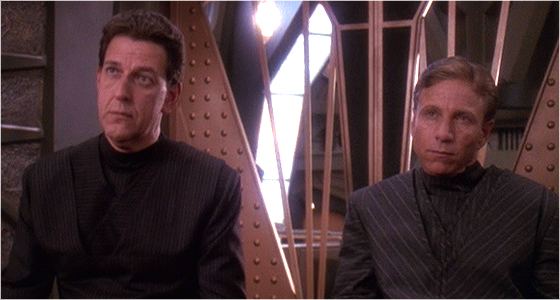The dedicated agents of the Federation’s Department of Temporal Investigations have their work cut out for them protecting the course of history from the dangers of time travel. But the galaxy is littered with artifacts that, in the wrong hands, could threaten reality.
One of the DTI’s most crucial jobs is to track down these objects and lock them safely away in the Federation’s most secret and secure facility. When Agents Lucsly and Dulmur bring home an alien obelisk of incredible power, they are challenged by a 31st-century temporal agent who insists they surrender the mysterious artifact to her. But before they know it, the three agents are pulled into a corrupted future torn apart by a violent temporal war.
While their DTI colleagues attempt to track them down, Lucsly and Dulmur must restore temporal peace by setting off on an epic journey through the ages, with the future of the galaxy hanging in the balance…
Order The Collectors:
I am a huge fan of Christopher Bennett’s Department of Temporal Investigations novels.
The first book, Watching the Clock, was published very shortly after I began writing my Trek Lit reviews. I remember that novel being one of my most-anticipated reads that year, and it definitely did not disappoint. I enjoyed Watching the Clock immensely, and when the second book was announced, Forgotten History, I was over the moon. Again, Bennett delivered a quality work based on an exciting and unique premise.
This time around, rather than a full novel, we are treated to an e-book exclusive novella. December’s new DTI entry, The Collectors is an adventure centering on our hapless duo, Dulmur and Lucsly, introduced in the wonderful Deep Space Nine episode “Trials and Tribble-ations.” Although this format is much shorter than the typical paperback novel, there is a lot going on in this story.

Dulmur and Lucsly are drawn into a time-twisting adventure with one of their counterparts from the 31st century, Jena Noi, and eventually end up millions of years in the future, where they confront a race of beings who are attempting to preserve all extinct species from every time period across the galaxy. These “Collectors” come under attack from a timeline that has been corrupted due to our characters interfering with one of their collection units. Trapped millions of years “uptime,” the three agents must set right what has gone disastrously wrong.
Whereas the previous two novels featured cameos and larger roles for Star Trek personalities besides the members of the Department of Temporal Investigations (for example, Janeway and others from the 24th century feature in Watching the Clock, while Forgotten History features the TOS crew quite heavily), The Collectors focuses solely on the DTI and other uptime counterparts of the agency.
I feel as though this particular format gave Bennett the freedom to maintain this focus. I may be wrong in this assumption, but it seems likely to me that for a full-size novel to be marketable, it would need more “anchors” to the wider Trek continuity in order to attract readers. In this smaller, more “niche” format, it’s possible that the author is able to have more freedom to tell a “smaller” story.
This, of course, makes me incredibly thankful that this format exists. I truly enjoyed this story, and I am very happy that we are able to read stories like this from the more obscure corners of the Star Trek universe. In fact, I would be in full support of a Department of Temporal Investigations e-book series. Maybe not as prolific as the prior Corps of Engineers series was; one story a year would be plenty!

Watch for a moment near the climax of the story in which two extinct species come together to form something from the nightmares of paleontologists and Starfleet officers alike. Pulling this off in a way I didn’t think was possible, Christopher L. Bennett had me crying with laughter at one particular moment. I don’t want to give it away, but you will know it when you read it!
Final thoughts:
At the heart of The Collectors is a debate between two opposing ideals: constancy and conservatism versus fluidity and change for the sake of change. Which is better?
It is interesting that the character of Lucsly, a man notorious for his desire to maintain the status quo including his unassailable belief in the one true unadulterated timeline, is the one to come to the conclusion that everything must eventually change and move on. The eponymous Collectors are concerned with the preservation of what was with no thought given to the changes they themselves have instigated.
